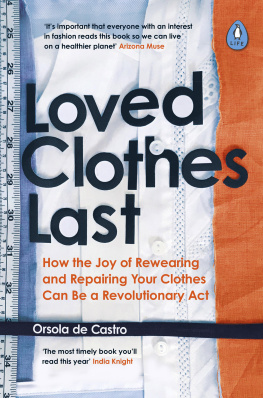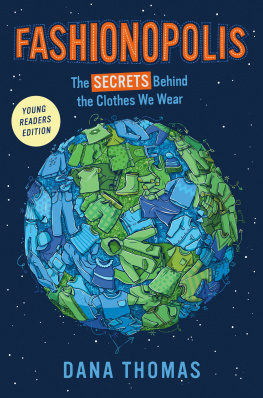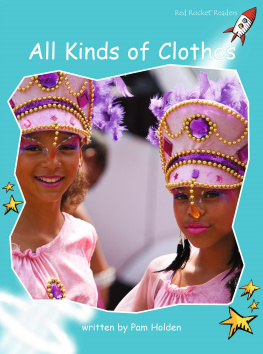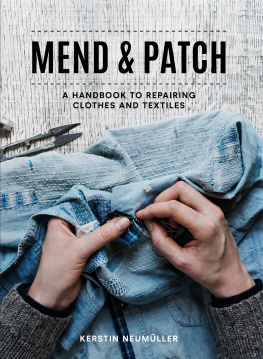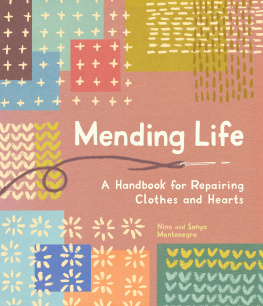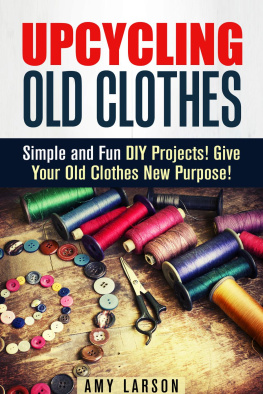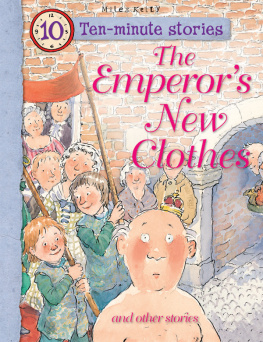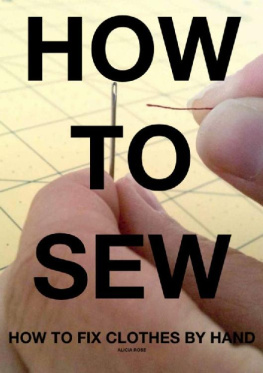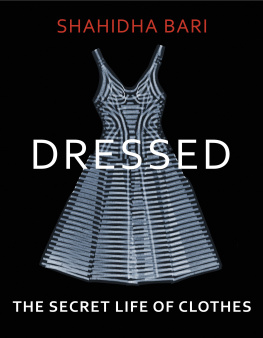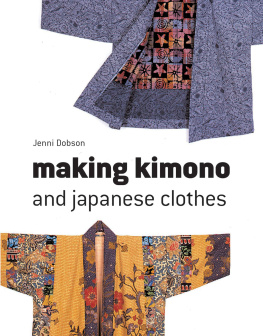Orsola De Castro - Loved clothes last : how the joy of rewearing and repairing your clothes can be a revolutionary act
Here you can read online Orsola De Castro - Loved clothes last : how the joy of rewearing and repairing your clothes can be a revolutionary act full text of the book (entire story) in english for free. Download pdf and epub, get meaning, cover and reviews about this ebook. year: 2021, genre: Home and family. Description of the work, (preface) as well as reviews are available. Best literature library LitArk.com created for fans of good reading and offers a wide selection of genres:
Romance novel
Science fiction
Adventure
Detective
Science
History
Home and family
Prose
Art
Politics
Computer
Non-fiction
Religion
Business
Children
Humor
Choose a favorite category and find really read worthwhile books. Enjoy immersion in the world of imagination, feel the emotions of the characters or learn something new for yourself, make an fascinating discovery.
- Book:Loved clothes last : how the joy of rewearing and repairing your clothes can be a revolutionary act
- Author:
- Genre:
- Year:2021
- Rating:3 / 5
- Favourites:Add to favourites
- Your mark:
- 60
- 1
- 2
- 3
- 4
- 5
Loved clothes last : how the joy of rewearing and repairing your clothes can be a revolutionary act: summary, description and annotation
We offer to read an annotation, description, summary or preface (depends on what the author of the book "Loved clothes last : how the joy of rewearing and repairing your clothes can be a revolutionary act" wrote himself). If you haven't found the necessary information about the book — write in the comments, we will try to find it.
Orsola De Castro: author's other books
Who wrote Loved clothes last : how the joy of rewearing and repairing your clothes can be a revolutionary act? Find out the surname, the name of the author of the book and a list of all author's works by series.
Loved clothes last : how the joy of rewearing and repairing your clothes can be a revolutionary act — read online for free the complete book (whole text) full work
Below is the text of the book, divided by pages. System saving the place of the last page read, allows you to conveniently read the book "Loved clothes last : how the joy of rewearing and repairing your clothes can be a revolutionary act" online for free, without having to search again every time where you left off. Put a bookmark, and you can go to the page where you finished reading at any time.
Font size:
Interval:
Bookmark:

PENGUIN BOOKS
UK | USA | Canada | Ireland | Australia
New Zealand | India | South Africa
Penguin Books is part of the Penguin Random House group of companies whose addresses can be found at global.penguinrandomhouse.com.

First published by Penguin Life in 2021
Copyright Orsola de Castro, 2021
The moral right of the author has been asserted
Illustrated by Georgia de Castro Keeling, London, UK
Designed by Maria Maleh and Justin Moore, London, UK
Cover design by Holly Ovenden
ISBN: 978-0-241-46116-7
This ebook is copyright material and must not be copied, reproduced, transferred, distributed, leased, licensed or publicly performed or used in any way except as specifically permitted in writing by the publishers, as allowed under the terms and conditions under which it was purchased or as strictly permitted by applicable copyright law. Any unauthorized distribution or use of this text may be a direct infringement of the authors and publishers rights and those responsible may be liable in law accordingly.
This book is for my husband Filippo, for my children Elisalex, Georgia, Giacomo and Leonia, for my grandchildren Vigo and Bronwen, and for my mother Matilde (Nanu).
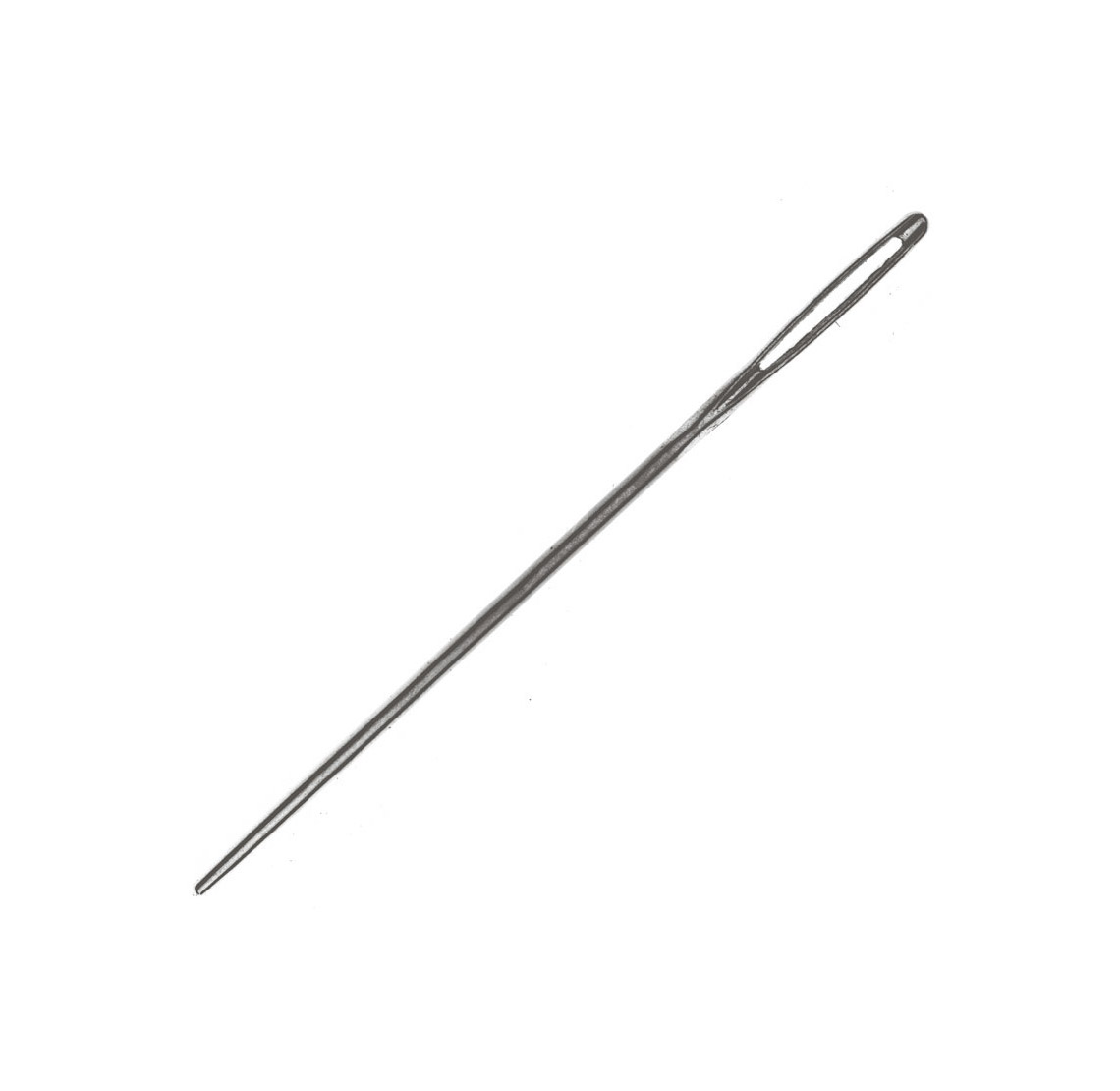
I started writing this book in October 2019. The week after I delivered the first draft to my editor, in February 2020, Milan went into lockdown as a result of the global pandemic of the coronavirus. To be even more precise, the day after I pressed Send I actually went to Milano Fashion Week, where I attended several shows and was a guest at a huge Vogue Italia gala dinner with hundreds of people.
Two weeks after I came back, London (where I live) went into lockdown too. By the time I was working on the final copy, in May 2020, I had been in self-isolation with my family, and most of the rest of the world, for more than two months.
In a few short months the world has been turned upside down, and many of the topics I talk about in this book mass production and mass consumption, waste, the exploitation of workers and engaging thoroughly with modern technology are now more relevant than ever.
Fashion is not frivolous, it is actually incredibly important, and to define it just as a series of passing trends is to deny its fundamental role in human culture and history. Clothes have always been at the centre of our lives, marking our rituals, representing identity, profession, rank and status, but they have profound social implications as well. What we wear often brings us together with others who wear similar things, helping us to find our people, connect and belong. We have always been enamoured with our clothes, from the time when the primal instinct of covering up developed into a more sophisticated concept of adornment, and we show little sign of losing interest.
The modern-day fashion industry is huge: a maze of disconnected supply chains encompassing many other industries, from agriculture to communication, affecting 100 per cent of the population and touching lives, natural resources, people and places in equal measure. In the UK alone the industry is worth approximately 32 billion, providing more than 850,000 jobs. Globally we are looking at a US $2.4 trillion business of never-ending runs of tops, dresses, trousers, T-shirts, shoes, bags and bikinis mostly looking the same, and many made by the same high-street or high-end enormous companies.
Fashion is one of the most socially exploitative and resource-polluting industries in the world, its economic and environmental impact is vast and its capacity for cultural influence is endless. Fashion is by no means superficial; it delves deep, saying as much about who we are, and the state of our civilization, as it does about our personal tastes and our local traditions.
Of course, its association with fleeting passions and womens work has rendered fashion an easy target for mockery, but the truth is that it cuts a much more serious figure in the great scheme of things, and todays fashion industry is hiding some pretty dark secrets behind a facade of gloss and glamour.
The statistics are almost grotesque: clothing production has doubled in the past 15 years and yet we are wearing our clothes less and less, either keeping them hidden and useless at the back of our wardrobe or getting rid of them without thinking of the consequences.
As a result, of the supposed 53 million tonnes of textiles produced globally every year, over 75 per cent are discarded, both in the production phase and at post-consumer level (after weve worn it). The equivalent of a rubbish truck full of discarded clothes goes straight into landfill every second.
The fate of cheap clothing is marked as soon as it leaves the factory, and its worthy of an unedited Grimm Brothers fairy tale: made in misery, bought in haste, worn for one night (if that) and then chucked in the bin. Our ready-to-wear has turned into ready-to-waste. Karl Marx once said that religion is the opiate of the masses to upgrade this concept, todays consumerism is our crack cocaine.
And expensive things arent necessarily better made; the luxury sector is equally responsible for damaging the environment and for human exploitation, and it would be a big mistake to think that just because something costs more its profits are more ethically distributed throughout its supply chain.
There is not much difference, apart from the price tag, between cheap clothes and fast luxury. It is the entirety of the fashion industry that is called into question, as is our insatiable thirst for more, more, more.
MEND
Over 75 per cent of the 53 million tonnes of textiles
REPAIR
produced globally every year are discarded.
REWEAR
There is no way that we can continue like this, as our resources are finite and will soon be limited in availability polyester will become more expensive than silk if we are to drastically reduce our dependency on fossil fuels, and cotton prices will skyrocket as we run out of the soil in which to grow it. Sustainability may be a buzzword right now, but what does it really mean to be sustainable when it comes to our clothes? What are the choices that we can all make, as clothes wearers, to shift from being part of the problem to becoming instead part of the solution?
It is wrong to think of sustainability as just another passing trend; the truth is very much the opposite: sustainability has been trending for billions of years, it is essential to our survival and our evolution. Sustainability is about balance, quality and respect; it denies us nothing and provides us with everything. It speaks of gratefulness rather than greed, resourcefulness instead of exploitation. Writer and activist Dominique Drakeford defines sustainability as an inherently black, brown and indigenous regenerative mechanism for living and engaging with nature. Excess that is the trend, and one we need to make firmly unfashionable or we are in danger of being the instruments of our own demise.
We can all do so much to change this. We can mend, repair and rewear. The alterations we must make arent about enjoying things less, they are about enjoying things differently and, when it comes to our wardrobes, reclaiming and restyling our used clothes to shape our intentions. We can look at limitations not as restrictions but as ways to stimulate alternative solutions, challenging ourselves to think of imperfections and faults as opportunities for improvement, rather than something to be discarded; just as we can learn so much from a mistake, so a broken piece of clothing properly mended can become a favourite statement piece.
Font size:
Interval:
Bookmark:
Similar books «Loved clothes last : how the joy of rewearing and repairing your clothes can be a revolutionary act»
Look at similar books to Loved clothes last : how the joy of rewearing and repairing your clothes can be a revolutionary act. We have selected literature similar in name and meaning in the hope of providing readers with more options to find new, interesting, not yet read works.
Discussion, reviews of the book Loved clothes last : how the joy of rewearing and repairing your clothes can be a revolutionary act and just readers' own opinions. Leave your comments, write what you think about the work, its meaning or the main characters. Specify what exactly you liked and what you didn't like, and why you think so.

